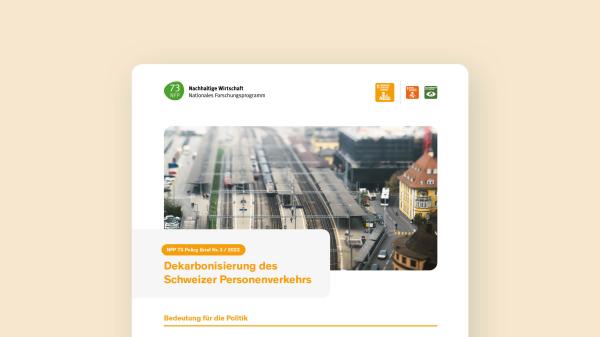Cities and Mobility
Key elements of a planned sustainable city are low energy consumption, sustainable use of space, building materials that are kept in circulation, and social equity. With an increasing urbanization trend, the demand for residential and commercial space is growing. This leads to higher levels of energy consumption as well as more waste. A sustainable economy requires a massive transformation of the infrastructure of urban spaces, as well as individual and public transportation. To become sustainable, cities must meet these challenges.
A research project has developed a simulation game for this purpose, which makes it possible to experience the processes required for this in a playful way.
The topic of "sustainable mobility" has been a focus of Swiss politics for years. Nevertheless, mobility continues to grow and contributes significantly to greenhouse gas emissions. In the long term, Swiss mobility should be environmentally friendly (net zero), economically efficient and at the same time accessible to all population groups and parts of the country.
A research project shows how the Swiss transport sector can achieve the net zero goal by 2050 with favorable economic effects.


